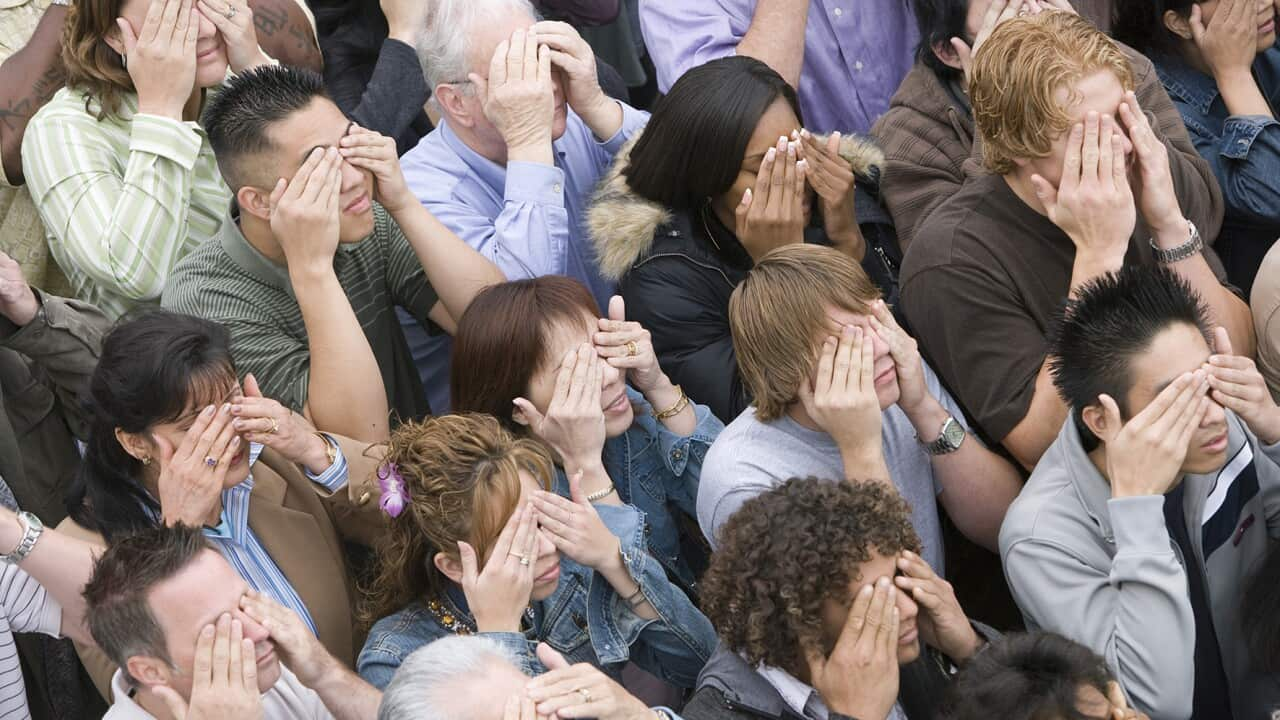Racism and terrorism. These age-old topics seem to be pacing across our news feeds, social media accounts and dinner tables with more charge these days than ever before, thrown around in chaotic scenes across American airports and London’s parliamentary quarters and, closer to home, used during national debates about changes to the Racial Discrimination Act.
While it is heartening to see individuals engaging in vibrant discussions about race, responding to recent media reports on , I can’t help but be pessimistic about the topic being discussed, again. “Same old, same old.”
Don’t get me wrong: it’s always good to address issues of racism - especially in a country with a long and bloody history of racism, discrimination and oppression such as Australia. These are discussions and conversations that the nation must have. However, the problem is that it seems like Australia keeps having the same conversation again and again (and again).
People who have been paying attention - especially People of Colour - know that racism has always been around, simmering beneath proclamations of multiculturalism and racial consciousness. The blatant racism that we are currently seeing was just waiting for the (alt) right group or the perfect leader who would make racism more visible and more common thereby making all racist acts and racial discrimination socially acceptable once more.
Those of us who have been involved in anti-racism spaces and social justice work always knew such a day could come. In addition to Australia’s chequered race relations history, this country has a population that is somewhat geographically insular (situated in Asia-Pacific yet culturally, persistently Anglo/Eurocentric), apathetic about asylum seekers (still experiencing a ‘’refugee crisis” for the past 20-plus years) and seemingly committed to denying the existence of a racist establishment (“Australia Day” still exists even though ).
But the problem doesn’t only lie with the population of denialists or even those who do benefit from Whiteness remaining unaddressed and unchallenged. Some of the problems also lie with the very people who are already aware and concerned about racism.
Calling out discriminatory practices and policies is just as important and just as brave as calling out individual acts of racism.
Jamaican writer and 2015 winner of the Man Booker Prize, Marlon James did a short viral clip recently, asking his viewers the question: “”? The purpose of the video was to point out that, even though many people will obviously say (and believe) that they are not racist, this is not the same as being anti-racist because, as James argues, being anti-racist means actively taking action against racism.
One of the problems when addressing racism is that racism is consistently framed as a bigoted and discriminatory , behaviour and ; and while that is indeed true, it is also an incomplete assessment or diagnosis of the problem. Racist thoughts, beliefs and acts exhibited by individuals are simply the symptoms of the bigger problem, which is systemic racism.
Within systemic racism lies racist policies and practices deeply embedded within the structural, institutional, organisational, societal, cultural and yes, individual levels of this nation - and this is the key point that is often left out because it’s “too complicated” or “too political”. But without acknowledging this key fact, any attempt in understanding and addressing racism will be superficial, unsuccessful and unsustainable.
Apart from stepping up during incidents of racial abuse or witnessing discriminatory behaviour caused by individuals, we also need to start addressing and challenging the ways racist policies and practices occur within our society and institutions - this is the purpose of understanding what privilege is about: it’s not just about the “privileged” individual but rather the system that provided that preferential treatment towards that person (and others like them).
But how do you challenge systems of discrimination, oppression and exploitation? The same as you would when facing a racist individual: you call it out.
If you think that the media content and the people running the organisations are disproportionately Anglo/Eurocentric, you call it out. If you think your own organisation or company offers too few positions or tokenistic roles for minorities, you call it out. If you think too many policies and programs are being designed without consulting minority and marginalised communities, you call it out.
If you think your own organisation or company offers too few positions or tokenistic roles for minorities, you call it out.
Calling out discriminatory practices and policies is just as important and just as brave as calling out individual acts of racism, if not more because it will require stepping up and calling out unjust practices and beliefs that have been embedded within organisations, institutions and communities for decades, if not centuries.
These are just some examples of action that you can take to move beyond individual acts of racism, but bear in mind that when you take on the task of challenging systems of oppression, this will be a lifelong struggle. I was reminded of this while listening to radical activist and civil rights icon, Angela Davis, who visited Melbourne last year. She invoked the following words of African-American abolitionist, , that without struggle, there cannot be progress:
“Those who profess to favour freedom and yet depreciate agitation, are people who want crops without ploughing the ground; they want rain without thunder and lightning; they want the ocean without the roar of its many waters. The struggle may be a moral one, or it may be a physical one, or it may be both. But it must be a struggle. Power concedes nothing without a demand. It never did and it never will.”
Azlan Petra is a racial justice advocate, cultural facilitator and is a part of The Two Chairs (a creative collective curating conversations on race, racism and racial justice) and the Racial Justice Day Out Committee.





